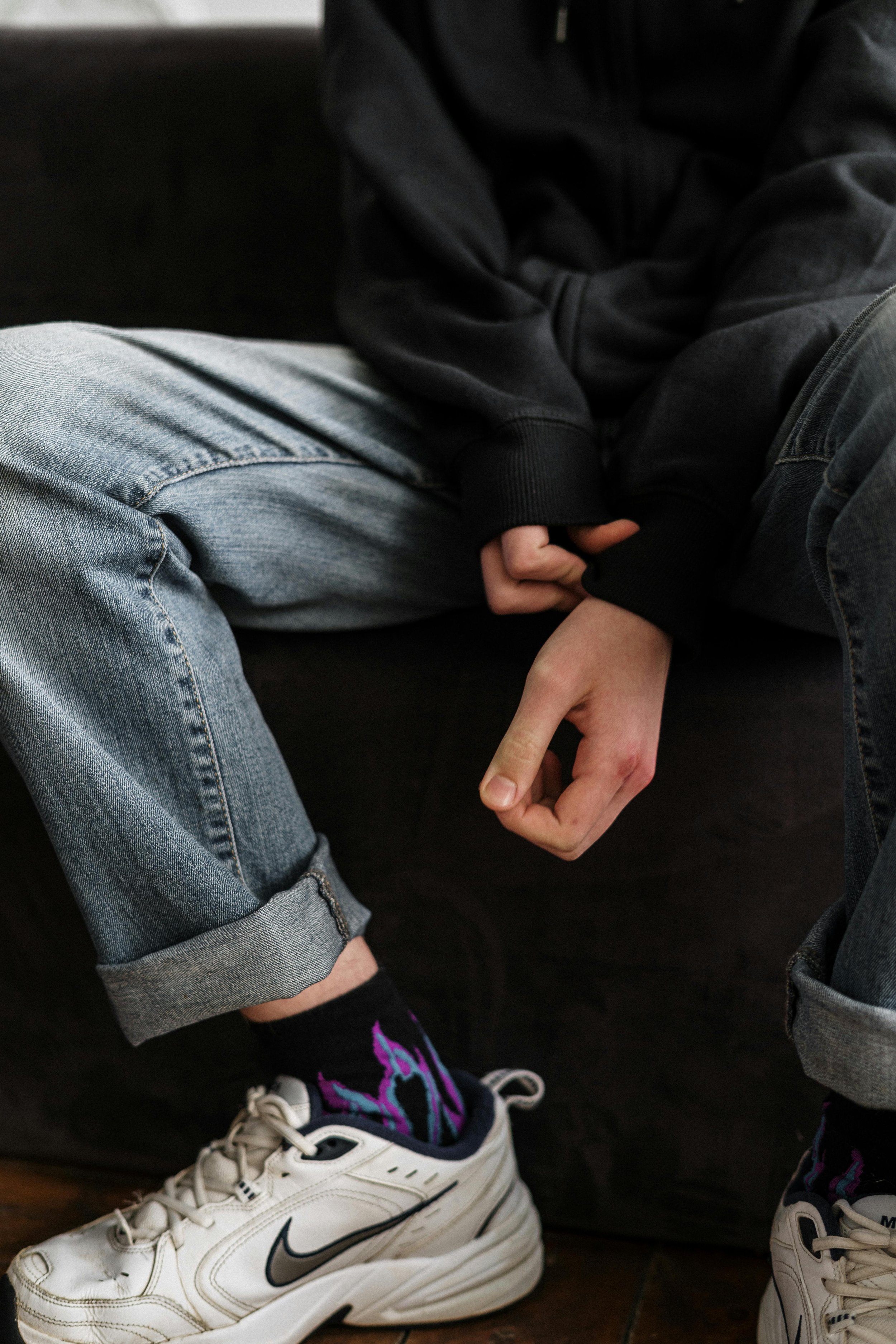HIV Stigma & Minority Stress
HIV stigma has a long and complex history in the U.S. and abroad. The PRIME Center for Health Equity explores the impacts of such stigma, how such stigma is reinforced by state and federal laws, and interventions to enhance psychological and physical outcomes among individuals living with HIV/AIDS.
Research Spotlight
Led by Dr. Breslow, the PRIME Center for Health Equity led an interdisciplinary team of healthcare providers and patient stakeholders at Montefiore Medical Center and across multiple institutions to pilot a therapy intervention aimed at reducing depression among older women living with HIV. Click here to learn more, and click here to read our recent publication!
-
Abstract
Hospitalizations among people living with HIV (PLWH) are frequent and costly. This study examined the association between psychiatric, HIV-related, and demographic factors and hospitalization rates among PLWH using data from the Einstein-Rockefeller-City University of New York Center for AIDS Research Clinical Cohort Database. Of the 10,215 PLWH included in the sample, 45% had at least one non-psychiatric hospitalization between 2009 and 2018, with significant risk factors including prior psychiatric outpatient visits, depression, or alcohol-related disorder diagnoses, female sex, older age, CD4 count < 500 cells/uL, and detectable viral load. Additionally, 14% had an HIV-related hospitalization, with significant risk factors including prior psychiatric outpatient visits, alcohol- and substance-related disorder diagnoses, female sex, older age, CD4 count < 500 cells/uL, and detectable viral load. The study emphasizes the need for tailored interventions, including integrated treatment and comprehensive case management, for PLWH with comorbid psychiatric disorders, women, and older adults.
To Cite: Breslow, A. S., Fazzari, M., Franz, P. J., Hanna, D. B., Felson, U. R., Cavic, E., Fisher, M. R., & Bauman, L. (2023). Longitudinal Associations of Psychiatric Risk Factors with Non-psychiatric Hospitalization in a Large Cohort of People Living with HIV in New York City. AIDS and Behavior, 27(10), 3487–3497. https://doi.org/10.1007/s10461-023-04064-6
Click here to view!
-
Abstract
Objective: Lesbian, gay, bisexual, transgender, and queer (LGBTQ) individuals report higher rates of exposure to traumatic events and posttraumatic stress disorder (PTSD) compared with heterosexual and cisgender individuals. No treatment outcomes research has focused on PTSD in the LGBTQ population. Trauma-focused psychodynamic psychotherapy (TFPP) is a brief, manualized, attachment- and affect-focused psychotherapy for PTSD. TFPP explicitly incorporates broad identity-related and societal factors into its conceptualization of trauma and its consequences, which may be especially helpful for LGBTQ patients with minority stress who seek affirmative care.
Methods: Fourteen LGBTQ patients with PTSD, assessed with the Clinician-Administered PTSD Scale for DSM-5 (CAPS-5), received 24 sessions of twice-weekly (12 weeks) TFPP via teletherapy provided by supervised early-career therapists inexperienced in the modality. Sessions were videotaped to monitor therapists' treatment adherence. Patients were assessed at baseline, week 5, termination (week 12), and 3 months posttreatment for PTSD symptoms (assessed with the CAPS-5) and secondary outcomes.
Results: TFPP was well tolerated by patients, with 12 (86%) completing the intervention. CAPS-5-measured PTSD symptoms, including dissociation, significantly improved during treatment (mean decrease=-21.8, d=-1.98), and treatment gains were maintained at follow-up. Most patients experienced PTSD clinical response (N=10, 71%) or diagnostic remission (N=7, 50%). Patients generally experienced significant, concomitant improvements in complex PTSD symptoms, general anxiety, depression, and psychosocial functioning. Adherence to the intervention among therapists was high, with 93% of rated sessions meeting adherence standards.
Conclusions: TFPP shows promise in the treatment of PTSD among sexual and gender minority patients seeking LGBTQ-affirmative PTSD care.
To cite: Keefe, J. R., Louka, C., Moreno, A., Spellun, J., Zonana, J., & Milrod, B. L. (2023). Open Trial of Trauma-Focused Psychodynamic Psychotherapy for Posttraumatic Stress Disorder Among LGBTQ Individuals. American journal of Psychotherapy, 76(3), 115–123. https://doi.org/10.1176/appi.psychotherapy.20220037
Click here to view!
-
Abstract
Despite strides in HIV prevention and lesbian, gay, bisexual, and transgender care, comprehensive care centers are of critical importance for lesbian, gay, bisexual, and transgender communities and people with HIV/AIDS who continue to contend with intersecting stigmas and chronic minority stressors. Building on the integrated attachment and sexual minority stress model, we discuss these themes by highlighting a group vignette from an urban psychiatric clinic that has provided affirmative psychotherapy to marginalized communities affected by HIV/AIDS for over 2 decades. The authors have rotated at the clinic as cofacilitators of a weekly, process-oriented group for sexual minority men who are HIV positive or are affected by HIV. In this article, we provide a theoretical foundation for HIV-affirming group psychotherapy and clinical integration of minority stress and attachment-based interventions. Group psychotherapy provides a rare opportunity to bond an often-isolated community by evoking factors of universality, cohesiveness, and catharsis. It simultaneously enables us to confront individual existential concerns with serostatus disclosure, grief, and feelings of victimization, as well as challenge internalized stigma and rejection sensitivity. We apply these issues to a verbatim clinical exchange, analyzing attachment-related themes and issues pertaining to minority stress and stigma, as well as discuss group mechanisms for attachment interventions.
To Cite: Mastropaolo, C., Carrasco, B., Breslow, A. S., & Gagnon, G. J. (2020). Security amidst stigma: Exploring HIV and sexual minority stressors through an attachment-based psychotherapy group. Psychotherapy, 57(1), 29-34. https://doi.org/10.1037/pst0000264
Click here to view!
-
Abstract
Activists and scholars have called for an end to HIV criminalization: the overly broad use of criminal law to penalize potential HIV transmission. These laws have documented adverse outcomes, although associations between HIV criminalization and psychological processes are understudied. The present study aimed to inform policy and care by examining the impact of HIV/AIDS minority stress in an online U.S. sample of 234 people living with HIV/AIDS (PLWHA; 78% male, 59% White, 66% gay). Expanding the psychological mediation framework of minority stress, we measured direct and indirect associations between HIV criminalization and discrimination with health outcomes via general psychological processes and group-specific proximal stressors. Findings indicated mixed support for hypothesized associations. Contending with minority stressors, including stress related HIV criminalization, continues to play important roles in the health-related outcomes of PLWHA. Specifically, HIV criminalization by state (actual laws in a participant’s state) yielded a significant negative direct and significant positive indirect association with psychological distress. Perhaps most notably, PLWHA residing in states with HIV criminal laws and reporting knowledge about such laws reported negatively impacted health outcomes. HIV-related discrimination, in line with theories of minority stress, yielded direct and indirect associations with increased psychological distress and decreased health-related quality of life. With the exception of cognitive reappraisal (the ability to adjust one’s thoughts to manage stress), indirect effects demonstrated support for the psychological mediation framework among PLWHA. Data suggest complex pathways through which HIV stigma may “get under the skin” and support calls to reduce HIV stigma and decriminalize HIV.
To Cite: Breslow, A. S., & Brewster, M. E. (2020). HIV is not a crime: Exploring dual roles of criminalization and discrimination in HIV/AIDS minority stress. Stigma and Health, 5(10), 83-93. https://doi.org/10.1037/sah0000177
Click here to view!
-
Abstract
Purpose: HIV/AIDS disproportionately affects young gay, bisexual, and other men who have sex with men (Y-GBMSM). Resilience remains understudied among Y-GBMSM living with HIV, but represents a potentially important framework for improving HIV-related outcomes in this population. We sought to explore cognitive and behavioral dimensions of resilience and their correlates among Y-GBMSM to gain insights to inform future interventions.
Methods: Our study sample consisted of 200 Y-GBMSM living with HIV enrolled in a multisite study of the Adolescent Medicine Trials Network for HIV/AIDS Interventions (ATN). Participants completed a one-time, self-administered structured questionnaire, including validated scales capturing a range of cognitive, behavioral, demographic, and psychosocial data. Utilizing these data, we examined cognitive and behavioral dimensions of resilience and their potential psychosocial correlates using linear regression modeling.
Results: Multiple regression analyses demonstrated that education, stigma, social support, ethnic identity, internalized homonegativity, and behavioral resilience were statistically significant predictors of cognitive resilience (P < 0.001, R2 = 0.678). Social support satisfaction and cognitive resilience were significant predictors of behavioral resilience (P < 0.001, R2 = 0.141).
Conclusions: Our findings point to potential strategies for incorporating resilience-promoting features into future interventions to support Y-GBMSM living with HIV. Specifically, strengths-based interventions in this population should seek to enhance social support, promote positive identity development, and encourage education. Future research can also seek to utilize and refine our measures of resilience among youth.
To Cite: Hussen, S. A., Harper, G. W., Rodgers, C. R., Van Den Berg, J. J., Dowshen, N., Hightow-Weidman, L. B., & Adolescent Medicine Trials Network for HIV/AIDS Interventions (ATN). (2017). Cognitive and behavioral resilience among young gay and bisexual men living with HIV. LGBT Health, 4(4), 275-282. https://doi.org/10.1089/lgbt.2016.0135
Click here to view!
-
Abstract
Participants were assigned to 1 of 4 lesbian, gay, bisexual, and transgender ally-development conditions; then, they completed measures of prejudice and propensity for social justice behavior. A structural equation model uncovered that propensity for social justice behavior was negatively related to prejudice and positively related to the emotional impact of experiences with discrimination in other domains of identity. Women, people of color, and individuals of lower social classes had the highest propensity for social justice behavior and the lowest prejudice.
To Cite: Perrin, P. B., Bhattacharyya, S., Snipes, D.J., Calton, J. M., Heesacker, M. (2014). Creating lesbian, gay, bisexual, and transgender allies: Testing a model of privilege investment. Journal of Counseling and Development. 92(2) 241-251. https://doi.org/10.1002/j.1556-6676.2014.00153.x
Click here to view!












